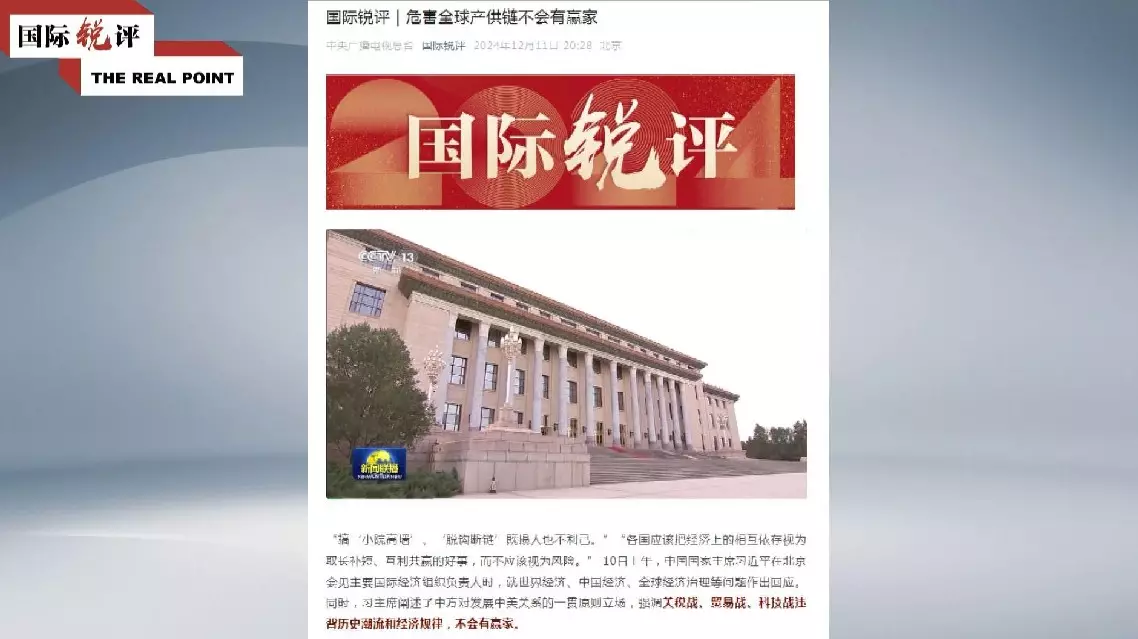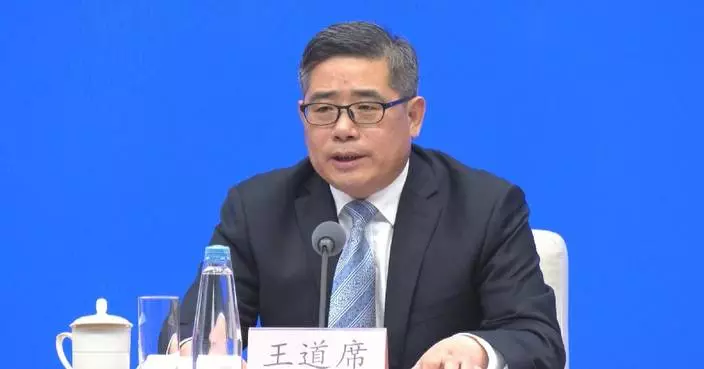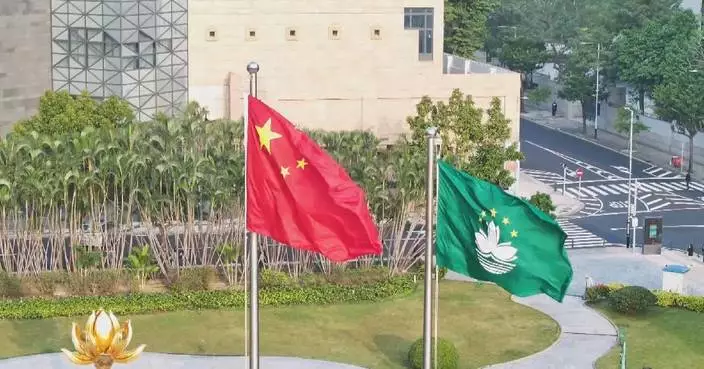Disruptions to global industrial and supply chains produce no winners, and this highlights the need for China and the United States to collaborate in stabilizing and enhancing these systems for the greater benefit of the global economy, said a China Media Group (CMG) commentary on Wednesday.
An edited English-language version of the commentary is as follows:
On Tuesday morning, Chinese President Xi Jinping met with heads of major international economic organizations in Beijing, where he responded on subjects of the world economy, the Chinese economy, and global economic governance.
Xi elaborated on China's consistent, principled position on China-U.S. relations, emphasizing that tariff wars, trade wars and sci-tech wars go against the trend of history and the laws of economics, and there will be no winners.
The heads of major international economic organizations at the meeting praised China as a crucial engine and anchor of global growth and a staunch defender of multilateralism, expressing their readiness to work closely with China to protect free trade and economic globalization.
As the world enters a new period of turbulence and transformation, marked by a rising tide of de-globalization, some Western countries, led by the United States, are advocating for "decoupling" under the guise of "de-risking" to preserve their monopolistic positions. This approach undermines global industrial and supply chains, reduces economic efficiency, hinders collective development, and exacerbates the risks of economic fragmentation.
As the world's two largest economies, China and the United States have their own advantages in global industrial and supply chains. Facing shared challenges such as sluggish global economic growth, China and the United States in particular need to view each other's development as an opportunity rather than a challenge, treat each other as partners instead of rivals, and shoulder the responsibility of maintaining stability in global industrial and supply chains as major countries.
At the recently concluded second China International Supply Chain Expo, the proportion of participating foreign exhibitors increased, with U.S. companies leading the way. This highlights the willingness of U.S. firms to expand cooperation with China.
With economic globalization and an integrated world economy, all parties are benefiting, demonstrating that efficient economic circulation relies on the smooth flow of resources.
When disrupted by human intervention, the world economy faces the risk of significant damage. For instance, the tariffs imposed by the U.S. on Chinese goods in recent years have caused trade between China and the U.S. to be rerouted through third parties, pushing up global trade costs.
At the beginning of this year, IMF Managing Director Kristalina Georgieva warned that economic fragmentation could reduce global GDP by as much as 7 percent, equivalent to the combined annual GDPs of France and Germany.
These highlight that "decoupling" is fundamentally unworkable and that a "small yard with high fences" will only lead to self-isolation. The world's two largest economies must strengthen their cooperative ties to enhance economic efficiency and achieve common development.
The world is currently witnessing a new round of sci-tech revolution and industrial transformation, with both China and the United States seizing the opportunity to advance innovation. The two sides can collaborate in innovation to optimize and upgrade global industrial and supply chains, so as to inject new momentum into the world's economic development.
Both sides have the willingness to deepen cooperation and address challenges in areas such as sustainable aviation fuel production and the green agriculture supply chain. The two countries also engaged in candid and constructive discussions in the field of artificial intelligence. These collaborative initiatives between China and the U.S. are illuminating new directions for global industrial and supply chains.
In just over a month, the new administration of the United States will take the office. Facing numerous global challenges, the international community are eying for a stable, sound and sustainable China-U.S. relationship, hoping that it will play a crucial role in maintaining the stability of global industrial and supply chains.
As two key links in the chains, China and the U.S. can only benefit the world by enhancing mutual exchanges and understanding.

Disruptions to global industrial, supply chains bring no winners: commentary









